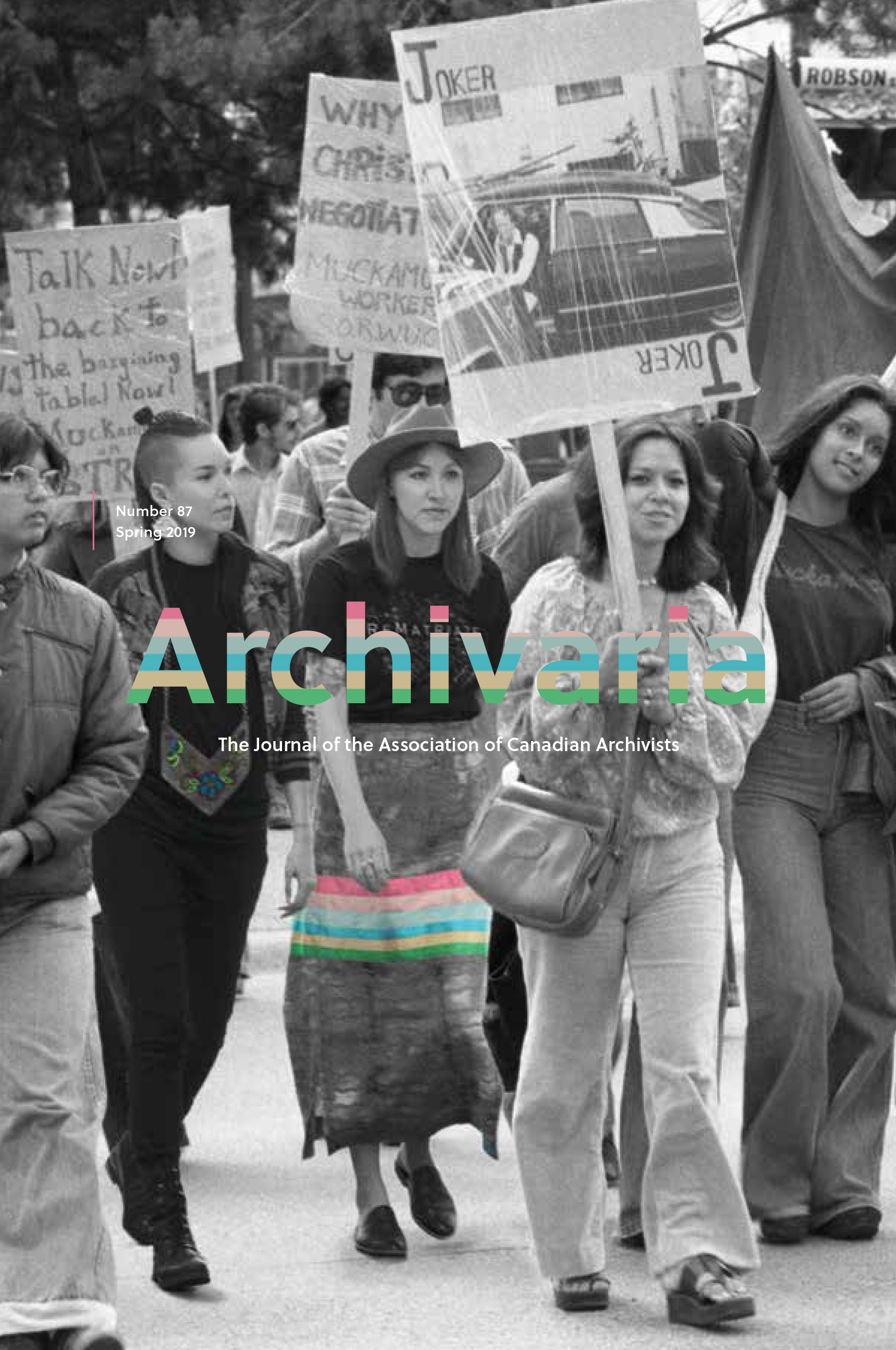Critical Questions for Archives as (Big) Data
Résumé
We may observe a growing preoccupation in archival literature with characterizing digital archives as big data – a term that suitably captures both their scale and their potential for manipulation through the application of computational methods and techniques for the purposes of discovering new insights. The possibilities for working with digital archives as data, from supporting archival arrangement and description tasks to promoting the use of digital archives as data sets by researchers, are indeed encouraging. But what are digital archives becoming when they are reframed as data, big or otherwise? What consequences might such a conceptualization have for the ways archival professionals imagine their role and their work? To the four archival paradigms of evidence, memory, identity, and community theorized by Terry Cook, a fifth may now be poised to emerge: an archives-as-data paradigm. In this article, I begin to map out what an archives-as-data paradigm could entail by exploring how the conceptual and practical dimensions of applying computational methods to digital archives may work conservatively to revivify notions of archival neutrality. For an archivesas- data paradigm to realize the more liberatory aims of which it is capable, an active and ongoing commitment to recognizing and calling out these tendencies is necessary.
RÉSUMÉ
On peut dénoter, dans la littérature archivistique, une préoccupation croissante quant à la qualification des archives numériques comme données massives – une terminologie qui souligne bien à la fois leur taille et leur potentiel à être manipulées par l’utilisation de méthodes et de techniques informatiques pour en extraire de nouvelles idées. Les possibilités d’utiliser les archives numériques comme données – de l’aide apportée aux tâches de classification et de description archivistique à la promotion de l’utilisation par les chercheurs des archives numériques en tant qu’ensemble de données – sont, en effet, encourageantes. Mais que deviennent les archives numériques lorsqu’elles sont redéfinies comme données, massives ou autres? Quelles conséquences une telle conceptualisation peut-elle avoir sur la façon dont les professionnels des archives pensent leur rôle et leur travail? Aux quatre paradigmes archivistiques de preuve, de mémoire, d’identité et de communauté, théorisés par Terry Cook, pourrait s’ajouter un cinquième: le paradigme de l’archive comme donnée (archives-as-data). Dans cet article je tente d’abord d’établir ce que pourrait signifier un paradigme d’archive comme donnée en explorant la façon dont les dimensions conceptuelles et pratiques de l’emploi de méthodes informatiques sur les archives numériques peuvent servir, à tout le moins, à raviver les notions de neutralité des archives. Pour qu’un paradigme d’archive comme donnée soit en mesure de produire, dans toute son ampleur, l’effet libérateur recherché, un engagement actif et soutenu à repérer et désigner ces tendances est nécessaire.
Authors of manuscripts accepted for publication retain copyright in their work. They are required to sign the Agreement on Authors' Rights and Responsibilities that permits Archivaria to publish and disseminate the work in print and electronically. In the same agreement, authors are required to confirm that "the material submitted for publication in Archivaria, both in its paper and electronic versions, including reproductions of other works (e.g. photographs, maps, etc.) does not infringe upon any existing copyright." Authors of manuscripts accepted for publication retain copyright in their work and are able to publish their articles in institutional repositories or elsewhere as long as the piece is posted after its original appearance on archivaria.ca. Any reproduction within one year following the date of this agreement requires the permission of the General Editor.





